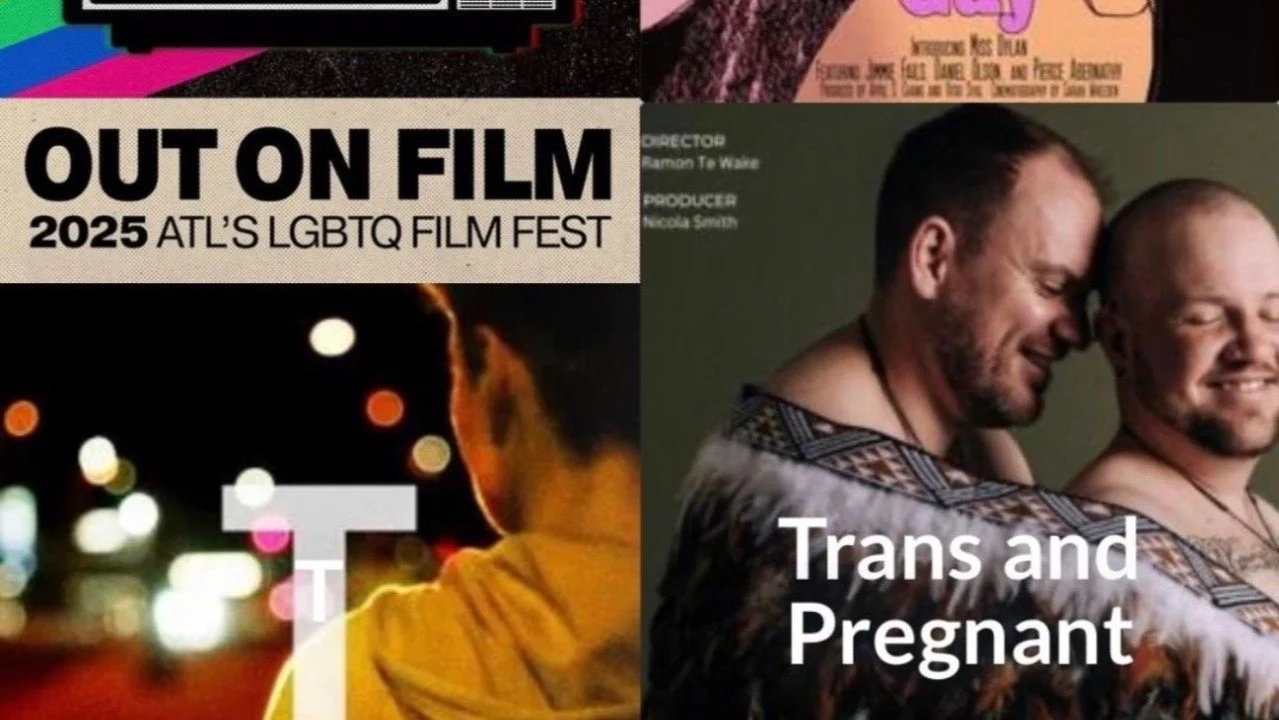Visibility as Resistance: What Film Festivals Teach Us About Intersectionality and Hope
From Ōtautahi to Atlanta and Mumbai
When Frankie Karetai-Wood-Bodley and I agreed to share our whānau’s story in Trans and Pregnant, we knew it would be personal, vulnerable, and sometimes raw. What we didn’t anticipate was the global journey it would take us on.
Our documentary has been officially selected for the 2025 Out on Film LGBTQIA+ Film Festival in Atlanta, Georgia, and for the KASHISH Pride Film Festival in Mumbai, India, as well as their Online Film Festival, following the honour of receiving the First Special Jury Prize at FIFO Tahiti.
These milestones are more than just screenings. They are reminders that in a world where trans rights and queer lives are under increasing pressure, telling authentic stories is itself an act of resilience.
“Visibility is powerful. In times of silencing, simply existing and being seen becomes resistance.”
A Global Backlash Against Queer Lives
Across the globe, governments and institutions are seeking to limit the lives of LGBTQIA+ people. From legislative attacks on trans healthcare to increasing online hate to attempts to erase queer history and culture, or educating and advocating for safe communities in schools, the pressure is mounting.
And yet, queer people, parents, and families exist in every community. We always have.
That’s why visibility matters. Not the shallow kind that tokenises, but the type that tells complex, real stories. Our documentary is not just about our journey as trans and queer parents; it’s about showing that families like ours are not anomalies. We are an integral part of society.
Intersectionality on Screen
Intersectionality, a concept coined by Kimberlé Crenshaw, is the idea that none of us lives a single identity at a time. Race, gender, sexuality, disability, class, and culture overlap, creating both compounded barriers and unique insights.
Trans and Pregnant is, at its heart, an intersectional story. It is about Frankie as a trans man with AuDHD and a father. It is about me as a bisexual, Māori, Pacific, disabled partner. It is about our whānau navigating systems and redesigning them because they're not built for us. We found strength in whakapapa, love, and community.
“When stories centre people at the intersections, they hold up a mirror to society, revealing both its failures and its possibilities.”
Film festivals like Out on Film in Atlanta and KASHISH in Mumbai make space for these intersectional truths. They amplify voices that might otherwise be silenced. They connect local realities to global struggles. And they remind us that what happens in Georgia, Mumbai, or Tahiti is linked to what happens in Ōtautahi | Christchurch, Aotearoa | New Zealand.
A Call to Action
Do you know what can be done?
Support intersectional storytelling. Fund, platform, and promote films, books, and media created by trans, queer, disabled, and Indigenous voices.
Challenge erasure. Demand that our stories be told in our own words, not filtered through dominant narratives.
Build global solidarity. Recognise that attacks on queer lives in one country ripple across the world. Our response must be international too.
Rebalance power and privilege. Ensure that those at the intersections, trans parents, bisexual Māori, disabled queer whānau, are not just visible, but resourced and empowered to lead.
“We don’t just want to be seen on the screen. We want to shape the systems behind the camera, the policies in the room, and the futures our children will inherit.”
For me, this journey is not only about the film, but also about the movement it is part of. Every festival, every audience, every conversation is a chance to carve out space for equity, inclusion, dignity, and hope. Nicola Smith (She/her) and Ramon Te Wake saw that the moment we told them, what's next for us. I'll forever be grateful to them for making this story come to life.
Kia ora Amerika. Namaste India. Māuruuru Tahiti. From Ōtautahi to the world, our story is one of many, and together, they form a chorus no one can silence.
🔗 Follow me for more reflections on systems change, equity leadership, and human rights diplomacy.
🖤 Ko te pae tawhiti whāia kia tata. Ko te pae tata whakamaua kia tīna. | Seek out the distant horizons so they may become close. Hold fast to the close horizons so they may be secured.


